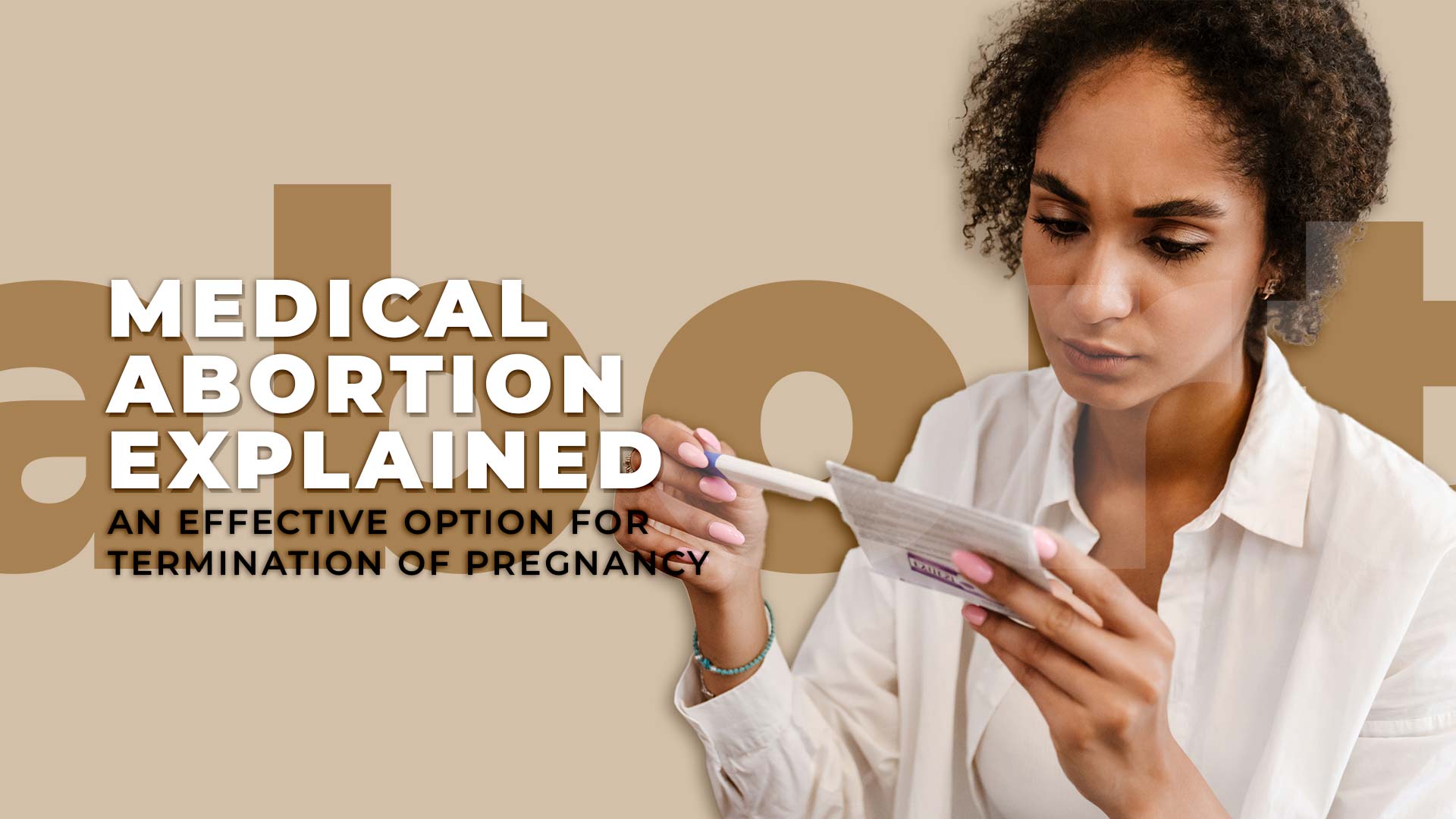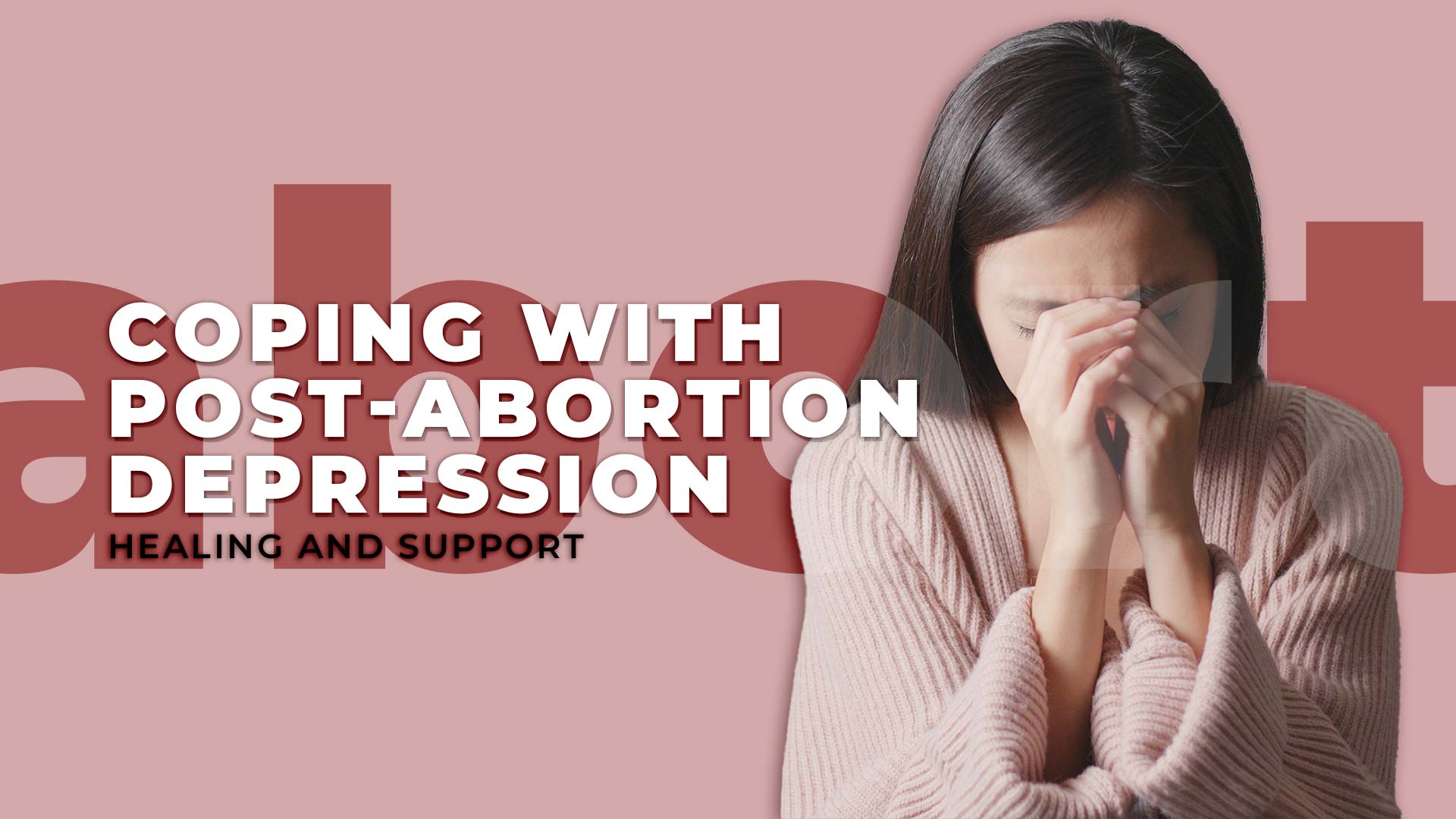Abortion is a safe and legal procedure that women choose for various reasons, including medical, financial, and personal. However, like any medical procedure, there is a risk of complications, and in some cases, the abortion may fail, leading to potential health risks and emotional distress. In this article, we will discuss the causes, risks, and treatments of a failed abortion.
What is a failed abortion?
A failed abortion refers to a situation where the termination of a pregnancy is not successful, and the pregnancy continues to develop despite attempts to terminate it. In a successful abortion, the pregnancy is effectively terminated, and the fetus is not viable or capable of continued development.
- Differentiation between a failed abortion and a successful one:
Failed Abortion: In a failed abortion, the termination procedure does not achieve the desired outcome, and the pregnancy persists. This could result in continued fetal development, leading to the possibility of a live birth if not addressed promptly. Failed abortions are considered problematic as they may cause emotional distress and have implications on the health and well-being of the pregnant person and the unborn child.
Successful Abortion: A successful abortion is one where the termination procedure effectively ends the pregnancy, preventing further development of the fetus and its viability. It is typically performed in a safe and controlled medical environment by trained professionals.
Causes of a failed abortion
Possible reasons behind an abortion procedure’s failure include:
- Incorrect administration of medication: In a medical abortion, a woman must take medication at the correct time and dosage for the procedure to be successful. Incorrect administration can lead to a failed medical abortion, where the pregnancy continues to develop.
- Incorrect Gestational Age Assessment: The effectiveness of different abortion methods can depend on the stage of pregnancy. If there is a miscalculation in the gestational age, the chosen method might not be appropriate for that stage, leading to a failed abortion.
- An undetected ectopic pregnancy: An ectopic pregnancy is a condition where the fertilized egg implants outside the uterus, most commonly in the fallopian tubes. Abortion pills are ineffective for ectopic pregnancies, and attempting to terminate them with medication can be dangerous.
- Structural issues with the cervix: A cervix that is too narrow or has scar tissue from previous procedures can make it difficult to complete a surgical abortion.
- Preexisting medical conditions: Certain medical conditions, such as diabetes and hypertension, can affect the success of the abortion procedure.
- Resistance to Medication: Medical abortions, which involve the use of medication to terminate the pregnancy, might not be effective in some cases due to individual variations in drug response.
- Provider Inexperience: Inexperienced or untrained healthcare providers may inadvertently lead to an unsuccessful abortion procedure.
- Infection or Inflammation: Infections or inflammations in the reproductive system can interfere with the abortion process and lead to incomplete termination.
Signs of failed abortion

Medical and surgical abortions are highly effective, but there exists a chance of less than 1% for the pregnancy to persist after the termination. Signs of a failed abortion can vary depending on the stage of pregnancy, the type of abortion procedure performed, and individual factors. It is essential to recognize these signs promptly to seek medical attention for appropriate evaluation and management. Indicators of continuing pregnancy following an abortion are
- prolonged vaginal bleeding
- persistence of pregnancy symptoms,
- abdominal pain or cramping
- a missed menstrual cycle,
- a positive pregnancy test (after 3-4 weeks when hormone levels should have normalized), and
- confirmation through ultrasound scanning.
In case you suspect a continuing pregnancy post-abortion, you should seek guidance from the abortion clinic immediately. To terminate the pregnancy, you may have to repeat the abortion procedure. The medical practitioner may suggest repeating the same medical termination procedure or opt for a different one, such as surgical abortion or manual vacuum aspiration.
Emotion effects of a failed abortion
Discovering that an abortion was not successful can cause significant emotional distress and anxiety. The uncertainty about the future and the implications of an ongoing pregnancy can be overwhelming. Individuals may experience feelings of guilt or shame, questioning their decision to undergo the abortion and feeling responsible for the situation. The failure of an abortion can lead to confusion about what to do next and uncertainty about the future.
The fear of judgment from others or societal stigma surrounding abortion can intensify emotional distress. Even if the pregnancy was unwanted, the individual may still experience feelings of loss and grief, particularly if they had emotionally prepared for the termination. Emotional support and counseling can be beneficial in helping individuals navigate through the emotional impact of a failed abortion.
Incomplete abortion: Can abortion fail?
Sometimes, even after the end of a pregnancy, some material may still be left in the uterus. This typically consists of the womb lining that formed a large clot and became trapped in the cervix or uterus before it could be expelled. This situation is referred to as an incomplete abortion and occurs in approximately 5% of all abortions. If you experience the following symptoms following the termination, you may be affected:
- More severe than anticipated cramping or bleeding
- Bleeding lasting longer than three weeks
- Heavy bleeding, particularly if it occurs suddenly
If you notice these signs, it is essential to contact the abortion clinic and see a doctor immediately to avoid further complications or blood loss. The medical practitioner may suggest one of the following treatments:
- Medications to stimulate uterine contractions
- Manual vacuum aspiration or dilation and curettage to eliminate the material from your womb.
While these procedures use the same techniques as an abortion, they are not considered a second termination since the pregnancy is already terminated.
What to expect after a failed abortion?
It is crucial to have a follow-up appointment with your healthcare provider approximately one week after the abortion procedure. During this visit, your doctor will examine your cervix and uterus to ensure that your body is healing correctly, and they will ask you questions about any post-abortion symptoms you may be experiencing, such as bleeding or discomfort. They will also conduct a lab test to measure your pregnancy hormones and check for any signs of infection. It is recommended that you postpone taking a pregnancy test for a few weeks.
What is the effectiveness of the abortion pill?

Medical professionals consider the abortion pill a highly effective solution for terminating a pregnancy, with only a 1% chance of causing adverse effects. Compared to surgical abortion, the abortion pill is equally effective in ending a pregnancy. However, certain factors may reduce the effectiveness of the abortion pill, such as incorrect administration or having an ectopic pregnancy. In such cases, surgical abortion is the only viable option.
Additionally, low-quality medication may be a possible reason for the failure of the abortion pill, and it is crucial to never purchase these drugs from an online or black market source. Only doctors can prescribe these medications, and ordering them without medical supervision can harm your health. By skipping the post-abortion support and care, you increase the likelihood of complications and side effects. It is essential to receive proper medical attention throughout the process.
Reasons why medical abortion failed to terminate a pregnancy
- Obtaining and using abortion pills without consulting a doctor or pharmacist.
- Incorrect dosage or inadequate use of medication.
- Experiencing vomiting or diarrhea after taking abortion pills.
- Presence of pre-existing pelvic infections.
- Pregnancy is more than three weeks past the expected menstrual cycle date.
- Undiagnosed ectopic pregnancy (dangerous when using abortion pills).
- Performing abortions without locating the gestational sac through sonography.
- Cervical abnormalities, such as stenosis, which prevent the cervix from opening up.
- Use of counterfeit medication or advice from unqualified medical professionals.
- Failure to properly follow up and detect incomplete abortions and prolonged bleeding.
Risks of failed abortion
An unsuccessful abortion can lead to dangerous complications for pregnant women, such as
- Incomplete Abortion: A failed abortion may result in an incomplete termination, where some fetal tissue or products of conception remain in the uterus. This can lead to continued bleeding, cramping, and an increased risk of infection.
- Infection: Incomplete abortion or retained fetal tissue can create an environment conducive to infection. Infections of the uterus or surrounding reproductive organs can cause symptoms such as fever, pelvic pain, foul-smelling vaginal discharge, and general malaise.
- Sepsis: If an infection is left untreated or becomes severe, it can progress to sepsis, a life-threatening condition where the infection spreads through the bloodstream, affecting various organs.
- Hemorrhage: Failed abortions can lead to excessive and prolonged bleeding, especially if there is retained fetal tissue. Severe bleeding can be dangerous and may require emergency medical attention.
- Anemia: Prolonged or heavy bleeding after a failed abortion can lead to anemia, a condition where there is a deficiency of red blood cells and a decrease in oxygen-carrying capacity.
- Emotional Distress: The emotional impact of a failed abortion can be significant, leading to feelings of anxiety, guilt, shame, depression, and grief. These emotions can have long-term effects on mental health and well-being.
- Repeat Procedure: Depending on the circumstances, a follow-up abortion procedure may be necessary to complete the termination successfully. This may involve surgical dilation and curettage (D&C) or other methods to remove any remaining fetal tissue.
- Ectopic Pregnancy: In some cases, a failed abortion may not be related to the procedure itself, but rather, it could be due to a pre-existing or newly developed ectopic pregnancy. Ectopic pregnancies occur when the embryo implants outside the uterus, typically in the fallopian tube, and cannot be terminated through a typical abortion procedure. An untreated ectopic pregnancy can be life-threatening.
- Psychological Impact: The emotional distress and uncertainty resulting from a failed abortion can have lasting psychological effects on the individual, affecting their mental health and well-being.
These complications can cause infertility or fetal malformations, impacting a woman’s daily life. Even with a safe abortion, complications may still occur, affecting a woman’s physical and mental well-being. To avoid these unwanted complications, women need to choose an appropriate and effective method of contraception if they don’t want to become pregnant.
Treatment for a failed abortion

The treatment for a failed abortion depends on the severity of the situation. In some cases, additional medication can be prescribed to complete the abortion. In other cases, a surgical procedure may be necessary to remove the remaining tissue from the uterus.
If the failed abortion leads to an infection, antibiotics may be prescribed to treat it. Medication can be given to reduce bleeding and prevent further clots from forming if a blood clot has formed.
Women must seek medical attention immediately if they suspect a failed abortion. Delaying treatment can increase the risk of complications and make it more challenging to complete the abortion procedure.
Takeaway
A failed abortion is a serious medical condition that requires prompt medical attention. Women who experience prolonged bleeding, pain, or suspect that the abortion was unsuccessful should seek medical attention immediately. Seeking proper medical care and attention can reduce the risk of complications and ensure a safe and successful abortion procedure.
References
- Redinger A, Nguyen H. Incomplete Abortions. [Updated 2022 Jun 27]. In: StatPearls [Internet]. Treasure Island (FL): StatPearls Publishing; 2023 Jan-. Available from: https://www.ncbi.nlm.nih.gov/books/NBK559071/
- Kim C, Barnard S, Neilson JP, Hickey M, Vazquez JC, Dou L. Medical treatments for incomplete miscarriage. Cochrane Database Syst Rev. 2017 Jan 31;1(1):CD007223. [PMC free article] [PubMed]





